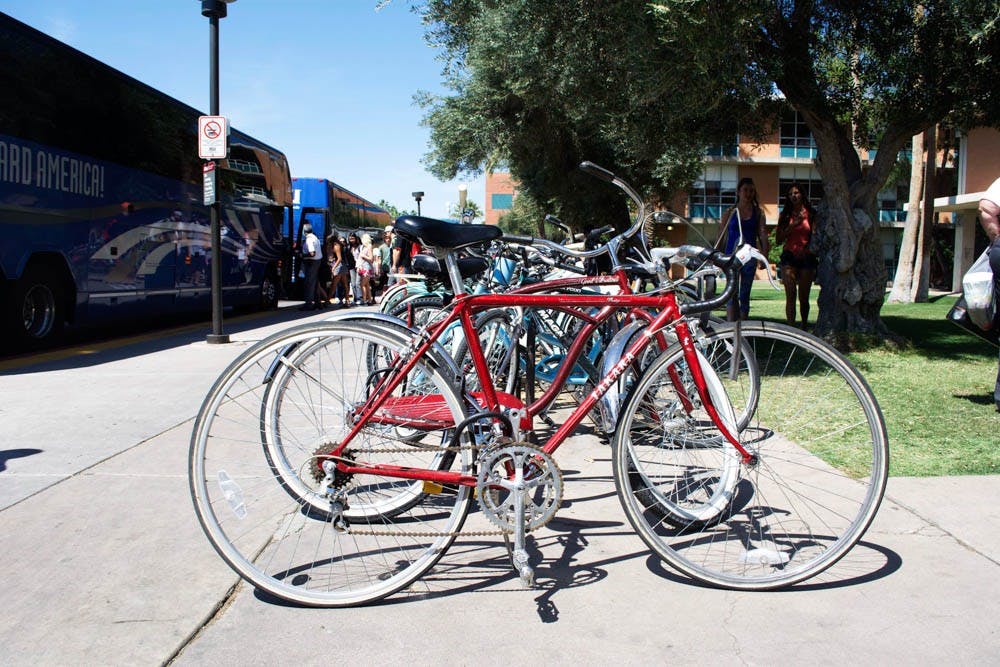In recent years, eco-themed bike festivals have emerged as powerful platforms for raising environmental awareness and promoting sustainable cycling practices. These festivals not only celebrate the joy of cycling but also serve as an educational tool, encouraging attendees to adopt more environmentally conscious lifestyles. By focusing on sustainability, these events aim to unite the cycling community, foster eco-friendly innovations, and ultimately drive positive change in the way we interact with our planet. This article explores the impact of eco-themed bike festivals, examining how they promote sustainable cycling, engage local communities, and educate attendees on the importance of environmental conservation.
The Rise of Eco-Themed Bike Festivals
The concept of eco-themed bike festivals has evolved over the past decade, fueled by a growing global emphasis on environmental sustainability and climate action. As cycling has gained popularity as a sustainable mode of transportation, events focused on cycling culture and green living have flourished. Eco-themed festivals are designed to showcase the benefits of cycling, not only as a recreational activity but also as a key solution to urban congestion, pollution, and carbon emissions. These festivals emphasize green transportation, eco-friendly products, and the adoption of sustainable practices in both cycling and everyday life.
Eco-themed bike festivals often feature a mix of activities, including races, group rides, bike demonstrations, workshops on sustainable practices, and eco-friendly product expos. At the heart of these events is a strong educational component, with speakers and activists addressing topics such as climate change, urban planning, waste reduction, and renewable energy.
Examples of Eco-Themed Bike Festivals
Several bike festivals around the world have successfully integrated environmental awareness into their programming. These events demonstrate how the cycling community can come together to promote sustainable living while enjoying their passion for biking.
- The Tour de Fat (USA): Organized by the New Belgium Brewing Company, the Tour de Fat is a traveling bike festival that promotes cycling and environmental awareness. The event features a mix of bike parades, live music, and beer, all while encouraging participants to bike more and drive less. A portion of the event’s proceeds is donated to local organizations supporting bike infrastructure and sustainable initiatives.
- The Bicycle Film Festival (International): The Bicycle Film Festival is a global event that showcases films about cycling, sustainability, and urban mobility. Alongside the screenings, the festival includes discussions on environmental issues and the role of cycling in reducing carbon emissions. This festival serves as a cultural hub for those interested in both the art of cycling and the environment.
- Vélo-city (International): Vélo-city is a global cycling conference that brings together professionals, urban planners, and cycling advocates to discuss the role of cycling in sustainable cities. The event is held annually in different cities worldwide and focuses on creating more bike-friendly infrastructure. Alongside conference discussions, the festival includes exhibitions on eco-friendly biking products and sustainable urban planning.
- The London Bike Show (UK): The London Bike Show is one of the largest cycling events in the UK, and in recent years, it has integrated a stronger focus on sustainability. The festival highlights the latest eco-friendly bikes, green accessories, and sustainable cycling practices. Attendees can explore innovations in electric bikes, recycled materials, and the latest advancements in sustainable cycling technology.
Promoting Sustainable Cycling Practices
One of the primary goals of eco-themed bike festivals is to promote cycling as an environmentally friendly and sustainable mode of transportation. By showcasing the benefits of cycling over traditional gas-powered vehicles, these festivals aim to encourage attendees to make greener choices in their daily lives.
1. Cycling as an Alternative to Cars
One of the key messages of eco-themed bike festivals is the environmental impact of cars and the benefits of choosing cycling as a sustainable alternative. In many urban areas, traffic congestion and air pollution are growing problems. By promoting cycling as a practical and efficient mode of transportation, these festivals help raise awareness about the importance of reducing car usage to combat climate change.
Some festivals incorporate group rides or bike-to-work campaigns, where attendees can participate in cycling activities that promote commuting by bike. These activities highlight the ease and efficiency of cycling, even in urban environments, and encourage people to consider biking as a daily alternative to driving.
2. Showcasing Eco-Friendly Bike Products
Eco-themed bike festivals often feature vendors and exhibitors that specialize in sustainable cycling products. These products include bicycles made from recycled or environmentally friendly materials, biodegradable lubricants, solar-powered bike accessories, and eco-friendly bike apparel. By providing a platform for these products, festivals help raise awareness about the growing range of sustainable options available to cyclists.
In addition to showcasing eco-friendly bike gear, some festivals host workshops and panels on sustainable cycling practices, such as how to reduce energy consumption through proper bike maintenance, how to recycle old bike parts, and how to support local, eco-conscious bike shops. These events empower attendees to make informed choices when purchasing cycling products and adopting sustainable habits.

Community Engagement and Educational Outcomes
Eco-themed bike festivals are not just about showcasing products—they are also about fostering community engagement and educating the public on environmental issues. The community aspect of these festivals plays a crucial role in creating a sense of collective responsibility for sustainability. Festivals provide an opportunity for individuals from diverse backgrounds to come together, share ideas, and take action toward a more sustainable future.
1. Fostering a Sense of Community
At the heart of eco-themed bike festivals is the sense of community they create. These events bring together cyclists, environmental advocates, local businesses, and policymakers who share a common interest in promoting sustainability. Through collaborative efforts, attendees can learn from one another, share best practices, and inspire each other to take action.
Festivals often include community-based activities, such as local bike rides, group discussions, or charity events that support sustainable causes. These activities strengthen social bonds and create a supportive environment for individuals who want to make a positive impact on the environment.
2. Educational Workshops and Talks
A key component of many eco-themed bike festivals is the inclusion of workshops, panels, and talks by experts in the fields of sustainability, cycling infrastructure, and environmental conservation. These educational sessions cover a wide range of topics, including the environmental impact of transportation, the role of cycling in urban mobility, and how to reduce personal carbon footprints.
By offering these educational opportunities, festivals provide attendees with valuable knowledge and tools that they can apply to their own lives. Participants learn about the broader environmental issues affecting their communities, as well as practical steps they can take to reduce waste, conserve resources, and adopt greener transportation options.
3. Inspiring Action Beyond the Festival
One of the most important outcomes of eco-themed bike festivals is the lasting impact they have on attendees’ attitudes and behaviors. By providing a platform for learning, networking, and action, these festivals inspire individuals to continue advocating for sustainable practices long after the event has ended. Many attendees leave festivals with a renewed sense of purpose, ready to incorporate sustainable cycling practices into their daily routines and share their knowledge with others.
In some cases, these festivals have spurred local communities to take action in their own neighborhoods. For example, participants may work with local governments to improve cycling infrastructure, advocate for more bike lanes, or organize group rides to raise awareness about the environmental benefits of cycling.
Challenges and Opportunities for Eco-Themed Bike Festivals
While eco-themed bike festivals have made significant strides in promoting environmental awareness, there are still challenges to overcome. One of the main challenges is ensuring that the festivals themselves are sustainable in terms of their environmental impact. Organizers must carefully manage waste, energy consumption, and transportation to minimize the carbon footprint of the event. In some cases, festivals have faced criticism for their reliance on non-sustainable practices, such as single-use plastics or excessive travel emissions.
However, these challenges also present opportunities for innovation. For example, festival organizers are increasingly turning to digital platforms to reduce paper waste, offering virtual participation options to reduce travel emissions, and collaborating with sustainable vendors to ensure that all materials used at the event are eco-friendly. These efforts not only improve the sustainability of the events themselves but also set an example for the broader industry.
Conclusion
Eco-themed bike festivals are more than just celebrations of cycling—they are vital platforms for driving environmental awareness and inspiring action toward a more sustainable future. By promoting cycling as an eco-friendly mode of transportation, showcasing sustainable products, and fostering community engagement, these festivals have the potential to make a lasting impact on both individual behavior and larger societal trends. As the demand for sustainable practices continues to grow, eco-themed bike festivals will play an increasingly important role in shaping the future of cycling and environmental advocacy.







































Discussion about this post